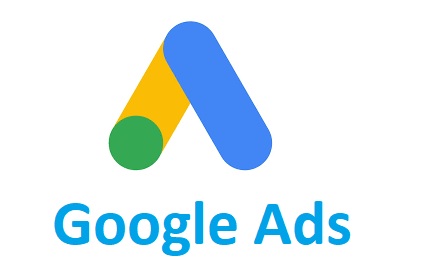What is Google AdWords? A Comprehensive Guide
In today’s digital age, businesses are constantly seeking effective ways to reach their target audience online. One such tool that has revolutionized online advertising is Google AdWords, now known as Google Ads. But what exactly is Google AdWords, and how does it work? In this comprehensive guide, we’ll delve into the intricacies of Google AdWords, its features, benefits, and how businesses can leverage it to grow their online presence.

Understanding Google AdWords
Google AdWords is an online advertising platform developed by Google that allows businesses to create and run ads on Google’s search engine results pages (SERPs) and its extensive network of partner websites. It operates on a pay-per-click (PPC) model, meaning advertisers pay a fee each time a user clicks on their ad. AdWords offers various ad formats, including text ads, display ads, video ads, and shopping ads, catering to different campaign objectives and target audiences.
Key Features of Google AdWords
- Keyword Targeting: Advertisers can choose specific keywords related to their products or services, and their ads will appear when users search for those terms on Google.
- Ad Auction: AdWords operates on an auction-based system, where advertisers compete for ad placement based on bid amount, ad quality, and relevance to the user’s search query.
- Budget Control: Advertisers have full control over their advertising budget, allowing them to set daily or campaign-level budgets and adjust spending based on performance.
- Targeting Options: Advertisers can target their ads based on factors such as geographic location, demographics, interests, device type, and more, ensuring their ads reach the right audience.
- Performance Tracking: Google AdWords provides detailed analytics and reporting tools that allow advertisers to track the performance of their ads in real-time, including impressions, clicks, conversions, and return on investment (ROI).
How Google AdWords Works
When a user enters a search query on Google, the search engine displays relevant ads alongside organic search results. Advertisers bid on keywords related to the user’s search query, and the ads with the highest bid and quality score are displayed. AdWords also offers the option to display ads on Google’s Display Network, which includes millions of websites and apps, further expanding the reach of advertisers’ campaigns.
Benefits of Google AdWords
- Increased Visibility: AdWords allows businesses to appear at the top of Google search results, increasing their visibility and attracting more potential customers.
- Targeted Advertising: With precise targeting options, advertisers can reach users who are most likely to be interested in their products or services, maximizing the effectiveness of their campaigns.
- Measurable Results: AdWords provides comprehensive analytics that allow advertisers to track the performance of their ads and measure their return on investment, enabling them to make data-driven decisions to optimize their campaigns.
FAQs about Google AdWords/Google Ads
Q. Is Google AdWords free to use?
Ans. No, Google AdWords is not free to use. While businesses can create an AdWords account at no cost, running ads and campaigns requires a financial investment.
Q. How much does it cost to advertise on Google AdWords?
Ans. The cost of advertising on Google AdWords varies depending on factors such as industry competitiveness, keyword popularity, and campaign objectives. Advertisers set a budget for their campaigns and pay for clicks or impressions.
Q. Can I control how much I spend on Google AdWords?
Ans. Yes, advertisers have control over their AdWords spending through budget allocation, bid adjustments, and campaign settings. They can set daily or campaign-level budgets and adjust spending based on performance.
Q. Are there any hidden costs associated with Google AdWords?
Ans. No, Google AdWords operates on a transparent pay-per-click model, where advertisers only pay when users interact with their ads. There are no hidden costs associated with AdWords.
Q. What is the minimum budget required for Google AdWords advertising?
Ans. There is no minimum budget requirement for Google AdWords advertising, allowing businesses of all sizes to participate based on their financial capacity.
Q. How do I create an account on Google AdWords?
Ans. Creating an account on Google AdWords is simple and free. Visit the Google Ads website and click on the “Start Now” button. Follow the prompts to enter your business information, set up billing details, and create your first ad campaign.
Q. What types of businesses can benefit from using Google AdWords?
Ans. Google AdWords is suitable for businesses of all sizes and industries. Whether you’re a small local business or a multinational corporation, AdWords offers targeting options and ad formats that can help you reach your target audience and achieve your marketing goals.
Q. How long does it take to see results from Google AdWords campaigns?
Ans. The time it takes to see results from Google AdWords campaigns can vary depending on factors such as campaign setup, budget, targeting, and competition. In general, advertisers may start seeing results within a few days to a few weeks of launching their campaigns.
Q. Can I run Google AdWords campaigns on a limited budget?
Ans. Yes, Google AdWords allows advertisers to set flexible budgets based on their financial capacity. Even with a limited budget, businesses can run targeted ad campaigns and adjust spending to maximize their return on investment.
Q. What are the different bidding strategies available on Google AdWords?
Ans. Google AdWords offers various bidding strategies to help advertisers achieve their campaign objectives. These include manual CPC (Cost-Per-Click), automated CPC, target CPA (Cost-Per-Acquisition), target ROAS (Return on Ad Spend), and enhanced cost-per-click.
Q. How can I improve the performance of my Google AdWords campaigns?
Ans. To improve the performance of your Google AdWords campaigns, focus on optimizing your ad copy, targeting relevant keywords, refining your bidding strategy, testing different ad formats, and regularly monitoring and analyzing campaign metrics to identify areas for improvement.
Q. Can I track conversions and sales from my Google AdWords campaigns?
Ans. Yes, Google AdWords provides conversion tracking tools that allow advertisers to track actions such as website visits, form submissions, purchases, and more. By implementing conversion tracking, businesses can measure the effectiveness of their ad campaigns and optimize for better results.
Q. Are there any best practices for writing effective ad copy on Google AdWords?
Ans. When writing ad copy for Google AdWords, it’s essential to be concise, compelling, and relevant to the user’s search query. Use clear and specific language, highlight unique selling points, include a strong call-to-action, and match ad copy with the landing page experience for better results.
Q. What is Quality Score, and how does it impact Google AdWords campaigns?
Ans. Quality Score is a metric used by Google to measure the relevance and quality of ads and keywords in AdWords campaigns. It’s based on factors such as ad relevance, expected click-through rate (CTR), and landing page experience. A higher Quality Score can lead to lower costs and better ad placement.
Q. Can I target specific devices with my Google AdWords campaigns?
Ans. Yes, Google AdWords allows advertisers to target specific devices such as desktops, laptops, tablets, and mobile phones. By adjusting bid adjustments for different device types, advertisers can optimize their campaigns for better performance on specific devices.

